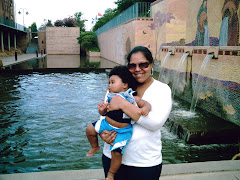I came into the course believing that I was an above average critical thinker. Being a natural cynic, I was convinced that it was impossible for anyone to deceive me. This course opened my eyes to my own short comings when it comes to critical thinking. In order to explain this I have to first revisit part of my original definition of critical thinking:
“Critical thinking encompasses the ability to engage in critical thinking, draw conclusions, and make decisions from a factual point of view as opposed to an emotional point of view. Critical thinkers will confront the bias in their own thinking and use a combination of factual data, life experience, the life experience of others and any other relevant and empirical data to reach a conclusion.” (H. McKay, 2009)
“Critical thinking incorporates the ability to analyze statistical information and not only draw conclusions, but also generate other relevant questions. Critical thinkers possess the ability to criticize their own thinking and learn to integrate new information into their thought process, even when it conflicts with initial theories and beliefs.” (H. McKay, 2009)
What attracted me to the field of Media Psychology was my own desire to explore the psychological impact of consuming media. Despite all of our ground breaking technological advancements, there is still a great deal of distance between human beings. Racism, sexism, and hatred of gays and lesbians are examples of some of the things that still cause distance between us. It isn’t until you start to explore some of the feelings and attitudes behind these “ism’s” that you begin to realize those who embody them are not engaging in critical thinking.
The definition I formed in the beginning of the course hasn’t changed. What has changed, is I have developed the ability to be more critical of my own thinking. My definition of critical thinking mentions that one must have the desire and the ability to learn to question aspects of their own thinking. This course has forced me to examine thoughts I have that may be biased, or unfounded. I also had to admit that some of the negative views I have held about certain groups of people based on their ethnicity, social class, or political affiliations came largely from the things I may have seen and heard in the media as opposed to coming from any factual data.
My goal as a Media Psychologist is to close the gap on some of the distance that exists between human beings. For example, we know that despite the fact that we live in a more integrated society than ever before, we still struggle with the ills of racism. While racism still exists in many instances, there are also many cases in which racism is perceived, but not necessarily present. Many whites have said they distance themselves from blacks and other minorities in an effort to avoid being viewed as racist (Goff, Steele, & Davies, 2008).
This is just one example of how advances in media and technology haven’t necessarily closed the inherent distance in human interaction. Despite the many tools we have at our disposal to bridge communication and life experience, we still struggle with age old issues. This could be due in part to an overall lack of critical thinking.
This course has changed the way I view media. I no longer take anything I see on the web, or television at face value. I have learned how to check the creditability of a website. I have learned how to critique an article to determine if the information is credible. I am constantly analyzing the information presented on the nightly news. I find myself asking more questions about the information I see and hear. As a scholar practitioner I believe I see more of the inherent value of social media in the world of marketing then I ever did before. I can now see how Facebook, Twitter and Linkedin can be used to successfully market products and services. I see the potential the media has to bridge gaps in human interaction and dispel stereotypes.
This course has also helped me see the value of scientific research. I realize the study of media and its impact on human behavior is a scientific process. I know going forward I will definitely be questioning my own bias on certain issues in order to better approach a research question scientifically. As I move forward in the Media Psychology program, I plan to use my research to educate others about the positive impact the media can have on human interaction and how learning to analyze the messages presented can make us all smarter media consumers.
Goff, P.A., Steele, C.M., & Davies, P.G. (2008). The Space Between Us: Stereotype Threat and Distance in Interracial Context. Journal of Personality and Social Psychology, 94(1), 91-107.


No comments:
Post a Comment